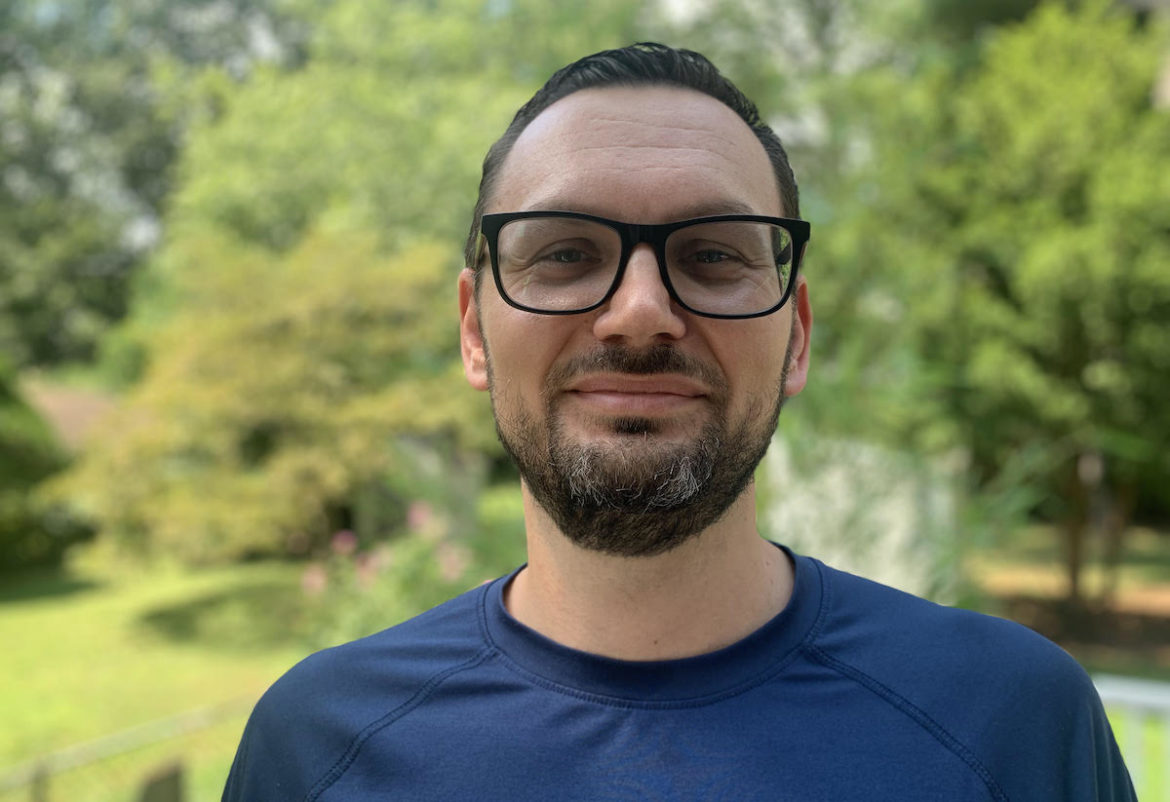 |
|
|---|
Mike Trzcianowski is a programmer with a passion for composing music and computers. He currently serves as a Senior Software Architect at software development company Axispoint.
How did you get into the industry?
Music and computers/software have always been a parallel passion for me. As soon as I got into the computer world in the DOS era (I played with Atari and ZX Spectrum computers earlier but nothing beyond games), I ran into the “demos” of the group Future Crew. I was impressed with the music that these guys could do on a DOS machine. Until then I only heard something like that made on an Amiga. I spent hours every week with one of my friends composing music with Music Tracker software that used samples. We also played a bit with MIDI software but you could never get a nice drum kit sound as with sampled sounds.
Around that same time my dad enrolled me in C programming classes and database development in DBase/Clipper. When I got to high school, my Pascal programming lesson seemed too basic for what I already knew.
When I came to NY I joined a music group called Society of Sound which later became Danger High Voltage Records. When I was in college, I also played a bit with the Yamaha RMX1 and Motif 6. But that was about it. These days I like to compose with software instruments and tools. I’ve got midi, mixers, filters, multi-track recording, synths, drum machines, etc…. all on a little iPad.
So moving on, one of my jobs in the early 2000s was working for a company that distributed audio content through mp4 files and voice/phone portals. We were basically doing podcasting before it was called that. That was before the iPod came out of course. Later I joined a company that was doing work for EMI and that’s how I finally got to learn the music business. The rest is pretty much history. We’ve done a lot of work in media and entertainment over the years. These days we continue with work in the music industry but also do quite a bit with other media, entertainment and advertising companies.
What does your current job entail?
Mediating and resolving business politics issues is important. I wish there was more training for that kind of work, especially in the technology fields.
I consider myself more of a blocker remover or problem remover. Sometimes the problem is technical but sometimes it’s a people problem. We have people from multiple time-zones, cultures, age, etc. and everyone has an opinion of what and how things should be done. So mediating and resolving business politics issues is important. (I wish there was more training for that kind of work, especially in the technology fields. And communication, which I think is an underrated skill.). I think that is the main difference between what seems a purely technical role and the reality of what is needed in order to build products.
What does a typical day look like for you?
What do you think are the most interesting developments in your area of the industry?
Software business is still very young compared to other industries. But we’ve had a lot of thinkers and more formalized processes. I think the exciting part in the software business is how much influence the open source movement has had. Big companies like Microsoft, IBM and Apple have started opening their code and/or working with open source projects.
I think the exciting part in the software business is how much influence the open source movement has had.
There’s other exciting areas like blockchain, artificial intelligence and virtual/augmented-reality. But like with all new and exciting stuff, there’s also a lot of hype. I think healthcare and environment-related businesses will be the ones taking the most advantage of those technological advances in the near future.
On the other hand, in the media and advertising industries we’re going through a lot of shake-ups and there’s a lot of flux. The interesting part will be to see where we end up. There seems to be a lot of money made in fake news. But I think (or I hope) that those businesses will not be sustainable. People will not turn away from Facebook quickly. But sooner or later there will be a new platform.
In music, when online streaming became available, we saw a long tail in the consumption of music that mainstream radio would never play. That long-tail is happening on the music production side as well. There’s more and more independent artists and music producers. At the same time there’s only a handful of major streaming platforms. It will be interesting to see what happens with companies like Epidemic Sound, with its controversial contracts, and which seems to try to fill some gap between independent artists and major labels while providing royalty-free sync licenses.
What’s been the most unexpected thing about the job?
I think the most unexpected thing has been the amount of “people” work I do. I never imagined how much people management, psychology, sales and marketing and other stuff I would need in order to do my job well.
What’s the coolest project you’ve ever done?
It’s really hard to pick one because there have really been so many different and interesting ones.
When I was in college I was working on a bridge inspection system and we got to travel to Louisiana (they’re one of the states with the most bridges because of the swamps) and see the system being used in the field.
At one point I also worked for a bank and helped with a platform migration for credit cards and ATMs.
The cool part of all the projects is how much you learn about all kinds of businesses.
What’s the best piece of advice you’ve ever gotten?
I’m not sure if this would be considered advice but one of my old bosses used to say, “Common sense isn’t common”. It’s important to take that into account when making decisions.
One of my old bosses used to say, “Common sense isn’t common”. It’s important to take that into account when making decisions.
You could interpret it in many ways. But basically, a lot of people don’t follow logical thinking. (Insert favorite Spock meme here). Whether it’s lack of knowledge, or driving your actions by emotions, you always have to consider the fact that people might not act logically or use their common sense. I think the current political environment is a great example of this.
What’s on your playlist at the moment?
I’ve been listening to a lot of downtempo and trip hop with a sprinkle of other stuff. Some of it includes:
Thievery Corporation, Nickodemus, Nightmares on Wax, Morcheeba, Faithless, Moby, Deep Forest, Sofi Tukker, Ana Tijoux, Twenty One Pilots, Chloe Charles, Jungle, Dire Straits, Gente de Zona.
What’s getting you through lockdown?
Coffee, working out and getting out of the house. It’s convenient not having to commute but staying home all the time can drive you nuts especially when the whole family is there too. Sometimes I just need some “me” time.
Whether it’s software, music or advertising, I hope businesses will be more socially responsible.
Do you have any predictions or hopes for the future of the industry?
Enjoyed this article? Why not check out:
- Joel Speaks to His Neighbors: Bill Bressler, Emmy Award-Winning Audio Engineer & Composer
- “Pre-Clearing Your Catalog for Sync at Fair Prices is the Way to Go” – Bopper’s Phil Messier Talks Simplifying the Music Process for Brands
- Changing the Way the Music Industry Interacts with Data: Q&A with Entertainment Intelligence Founder Greg Delaney
